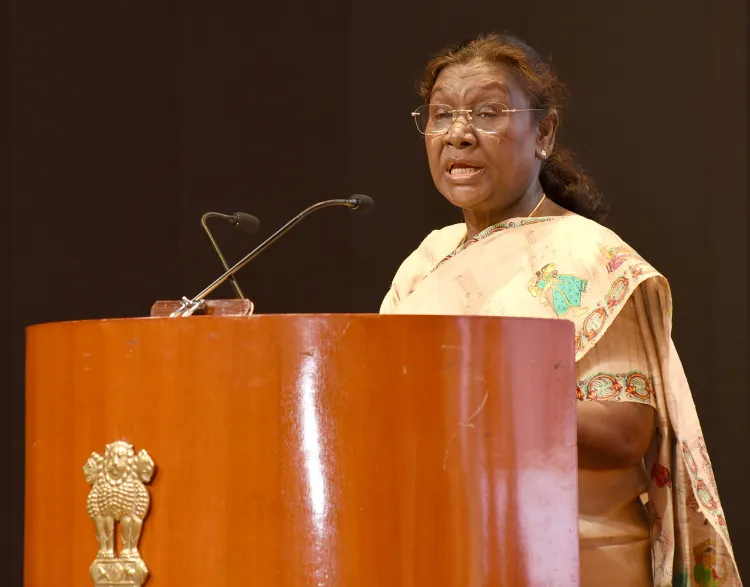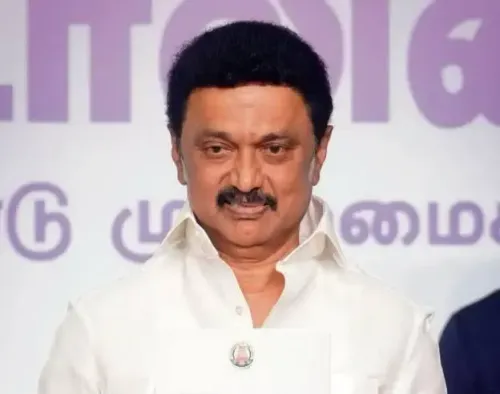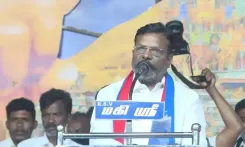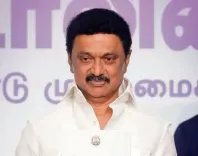Can Timelines Be Imposed on Governors for Bill Assent? President Murmu Asks SC

Synopsis
Key Takeaways
- President Murmu seeks SC opinion on imposing timelines for Governors.
- Judicial review of gubernatorial actions may be on the table.
- Supreme Court declared the Governor's actions as illegal and arbitrary.
- A three-month deadline established for Presidential assent.
- President must provide reasons for decisions on Bills.
New Delhi, May 15 (NationPress) Following the Supreme Court's ruling in the Tamil Nadu Bills matter, President Droupadi Murmu has invoked Article 143 of the Constitution, requesting the Supreme Court to explore whether timelines can be enforced on Governors for acting on Bills in the absence of a constitutionally-mandated deadline.
The President sought the court’s opinion on the constitutional options available to a Governor when a Bill is submitted under Article 200 of the Constitution of India.
She inquired, “Is the Governor obligated to follow the advice of the Council of Ministers when exercising his options regarding a Bill presented under Article 200 of the Constitution of India?”
Additionally, she questioned whether the Governor's constitutional discretion concerning Bills is subject to judicial review, given that Article 361 of the Constitution prohibits judicial scrutiny of gubernatorial actions.
President Murmu further asked the court to consider, “In the absence of a constitutionally-specified timeline and a defined manner for the President's exercise of powers, can timelines be enforced through judicial directives for the President’s discretion under Article 201 of the Constitution of India?”
Earlier in April, a two-judge Bench of the Supreme Court utilized its inherent powers under Article 142 of the Constitution to resolve a conflict between the Tamil Nadu government and Governor R.N. Ravi regarding delays in approving Assembly-passed Bills.
The court ruled that Governor Ravi's refusal to sanction 10 Bills in Tamil Nadu was “illegal and arbitrary” and established a three-month deadline for Presidential and gubernatorial approval of Bills that have been passed twice by the legislature.
“The President must decide on the Bills reserved for consideration by the Governor within three months from the date of receipt of such reference,” stated the Bench comprising Justices J.B. Pardiwala and R. Mahadevan.
If no decision is rendered within this period, states are permitted to file writ petitions seeking a writ of mandamus against the President, clarified the Justice Pardiwala-led Bench.
The Supreme Court declared the 10 withheld Bills as deemed assented on the date they were presented to the Governor after being re-evaluated by the state legislature.
The court determined that once a Bill is returned, re-passed by the legislature, and presented again to the Governor, it cannot be reserved for the President’s consideration.
Moreover, the President is now required to provide reasons for their decision, which must be communicated to the state government.
It also recommended that the President consult the Supreme Court on Bills involving constitutional matters.
This judgment appears to have brought Presidential actions under judicial scrutiny by favoring a three-month deadline for granting assent to Bills.
The situation escalated when Vice President Jagdeep Dhankhar criticized the judiciary, likening Article 142 to a ‘nuclear missile’ wielded by the judiciary against democratic institutions.










